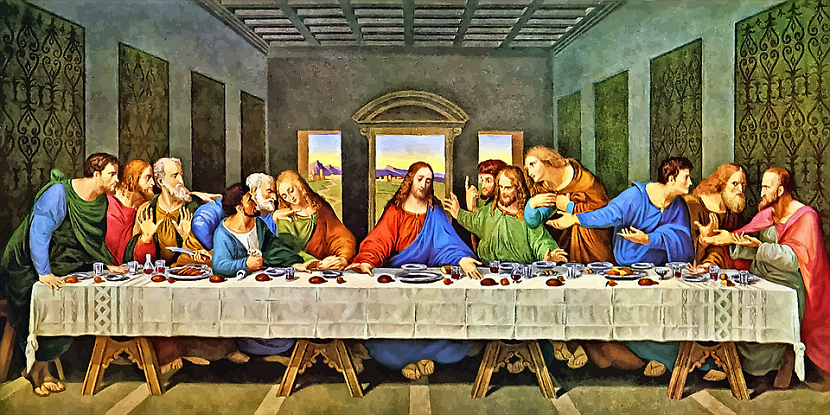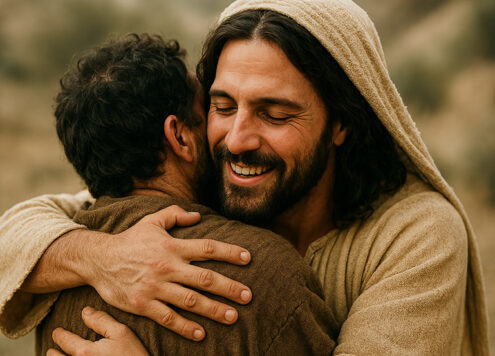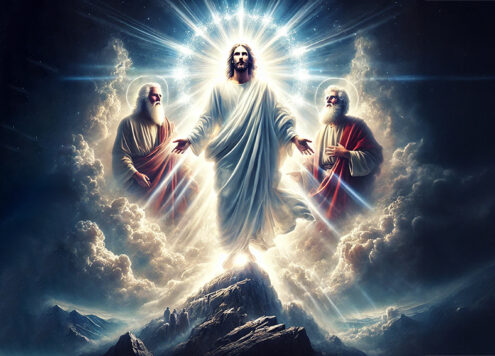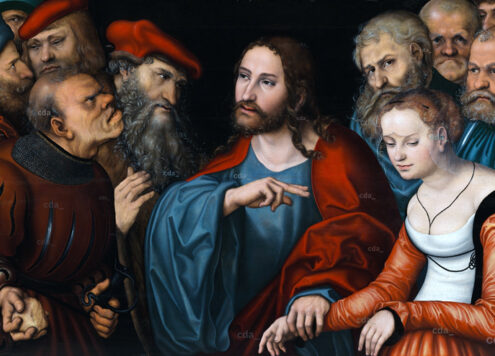There are mysteries and mysteries, and the real presence of Christ in the Eucharist ranks as one of the most personal truths of our Christian faith.
Jesus declares that “whoever eats my flesh and drinks my blood has eternal life, and I will raise him on the last day” (John 6:54). At the Last Supper, He gave us the sacrament of the Eucharist whereby we could receive His body and His blood under the species of bread and wine (Mattthew 26:26–28; Luke 22:14–20).
Jesus, however, does not explain how this miraculous transformation of the bread and wine into His body and blood takes place. It is a mystery of faith which many found difficult to accept from the lips of the Lord Himself.
Even Jesus’s closest disciples had their doubts about the Eucharist. Many of them objected, saying: “This saying is hard; who can accept it?” And, as a result, some of them “returned to their former way of life and no longer accompanied Him” (John 6:60, 66).
Peter stood apart from the rest, and spoke up for the twelve when Jesus asked if they also wanted to leave Him. Peter boldly declared his faith: “Master, to whom shall we go? You have the words of eternal life.” (John 6: 60, 67–6). This is one of the great professions of faith found in the gospels. Jesus acknowledged Peter’s gift of faith which came, not from his own nature, but from God (Matthew 16:17).
We must always remember that the real presence of Jesus in the Eucharist is a mystery. It is not a problem that can be analyzed, studied, and compartmentalized. It is simply a mystery of faith whereby we receive Christ. The best way to appreciate this mystery is to live it by receiving Christ worthily and by worshiping at the Eucharistic banquet which He has commanded us to do when He said: “do this in memory of me” (Luke 22:19).
The Eucharist is such a rich sacrament that it is the source and the summit of the Christian life. We are all one with the Lord and with one another when we share in the breaking of the bread, the body of Christ. When we consume the consecrated bread and wine, we are taking Christ into ourselves to become living temples in which He tabernacles Himself. Not only is Jesus present everywhere: in creation, in His word, where two or three are gathered together in His name, and among the destitute of the world. He is also especially present in a particular place at a particular time when we receive Him as our spiritual food during the celebration of the Eucharist.
Jesus gave us the Eucharist after the miracle of the multiplication of the loaves and fishes (John 6:51–58). His listeners thought it would pay to follow a leader who supplied food in such abundance. But, Jesus had another hunger in mind, another kind of life. And so, He advanced the discussion and focused the interest of His listeners beyond the satisfaction of a full belly to acceptance of His very self as the source of life.
At the Eucharist, we accept Jesus’s invitation to the meal of salvation. We recognize His magnificent sacrifice for our sins on the cross, and our own need for repentance, conversion, and reconciliation. We acknowledge our constant hunger for the Lord. We discover we are bound to one another as we share the same sacred meal together. We also commit ourselves to live according to the teachings of Jesus, and we pledge ourselves to go forth, peacefully, to serve the Lord by satisfying the hunger and thirst of our brothers and sisters in need.
Lord, enable us to be a Eucharistic people by spreading the awesome love of Your Son around us.
—Fr. Hugh Duffy











4 Comments
Robert Sledz
Charlotte Church called Pope Benedict XVI a Nazi….. That is why she was removed from Ignatius Press Publications. I thought you should know that.
Pastor Martin V. Paye
Praise God for this inspired message. May God bless you as you continue to build the Kingdom of God.
I pray to be connected to you for such divine teaching.
George Kalivoda
Thank you Father for your commentary. We do long for the Holy Eucharist and that longing hopefully helps us to receive most humbly and thankfully giving praise to the Holy Trinity. The Father, Son, and Holy Spirit are all in the Holy Eucharist. Where one is are the other two.
God Bless/Warm Regards,
Murray Alfredson
Is there a difference between a mystery and metaphoric speech? I personally find that interpretation of those words from John’s gospel naively literal. Perhaps it is ironic that those evangelical Christians who fight so hard for Zwingli’s view of the Eucharist symbolic, fail fight so hard for their own literal interpretation of the Bible.
I speak as a poet here, not as a Christian.